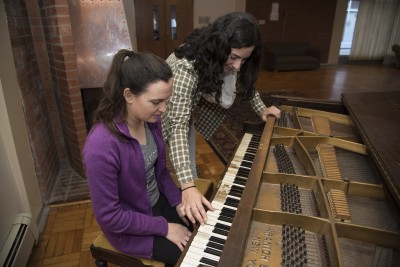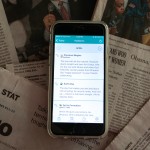
Pinch, a New Jersey-based app that allows buyers to set a flat rate for unique services, will now offer Boston millennials a market in which they can sell their myriad talents by becoming “Pinch Pros” in topics including, to name a few, twerking and deejaying.
The app was originally buyer-focused. Now, though, it has expanded to encompass a seller-based business model that will provide independent workers with a platform to market their various talents.
Christian Na, a Boston University alumnus and co-founder of Pinch, said the dual structure of the app will allow for creativity on both the buyer and seller fronts. The app, he said, creates a platform for unique services that cannot be found anywhere else.
The Pinch Pros function will launch sometime this week, he said, and is an expansion of the existing Pinch app.
The function “was always in the making,” Na said. “And with what we’ve learned over the past 12 months, we’ve been able to wrap the app around the seller-driven model.”
He also said the app will cater to the changing dynamics of the workforce.
“Thirty-four percent of the U.S. workforce today … [is] contingent workers,” Na said. “They’re no longer in the offices or the high-rises. They’re doing non-traditional work.”
With the number of independent workers in the United States expected to make up 50 percent of the workforce by 2020, Na said an interface that can facilitate a work-life balance will soon be greatly needed.
Half of those working contingent jobs in the United States are millennials, Na said, and what they want more than money is the flexibility to do what they want. As traditional ideas are changing, an increasing number of people have multiple employers or are doing independent contracting.
“We’re truly providing people the ultimate flexibility,” Na said. “We want to do something that’s fulfilling, rewarding and experiential, [but] that’s also economically rewarding, and we also want to do it in our own time and way.”
Na said what makes Pinch stand out among other service apps is that the app is not a dispatch amenity. Rather, Pinch allows people to come in and create their own offers.
For example, an Uber driver can break up the monotony of the work by offering the service on Pinch. The app allows them not only to drive people to the hotel from the airport, but also wait for them to check in and then take them on a driving tour of Boston or Cambridge for a comparable amount.
“It’s a perfect way to match buyer demand,” Na said.
This model will help contingent workers find their own way to help others nearby and earn money by tapping into individual talent and skill, Na said.
Cameron Wiewel, an intern for the Pinch Pro management team, said he is excited to be working for the app because of how innovative the company is.
“We’re trying to separate ourselves by offering something different from the competition,” Wiewel said.
BU student Clara Edwards, a freshman in the College of Arts and Sciences, said the app seems like a good opportunity for different people to be able to express a multitude of talents in a productive way.
“I think a way to have an interface that’s more accessible is a great idea, especially because everyone has some kind of skill,” she said.
Edwards said Boston is a great location for this market because “there’s a lot of talent in a lot of different places in one city.”
Such skill is abundant in a city like Boston, where the large millennial population makes it a good for this function, Na said.
Pinch now has 300 Pinch Pros, which Na hopes will lead to Pinch becoming the Etsy of in-person help by creating a virtual mall where people can browse and discover services that were only previously available via word of mouth.
“This really allows for the first-time people to not work and do things their way,” Na said, “but truly do them in a fun and creative way.”




